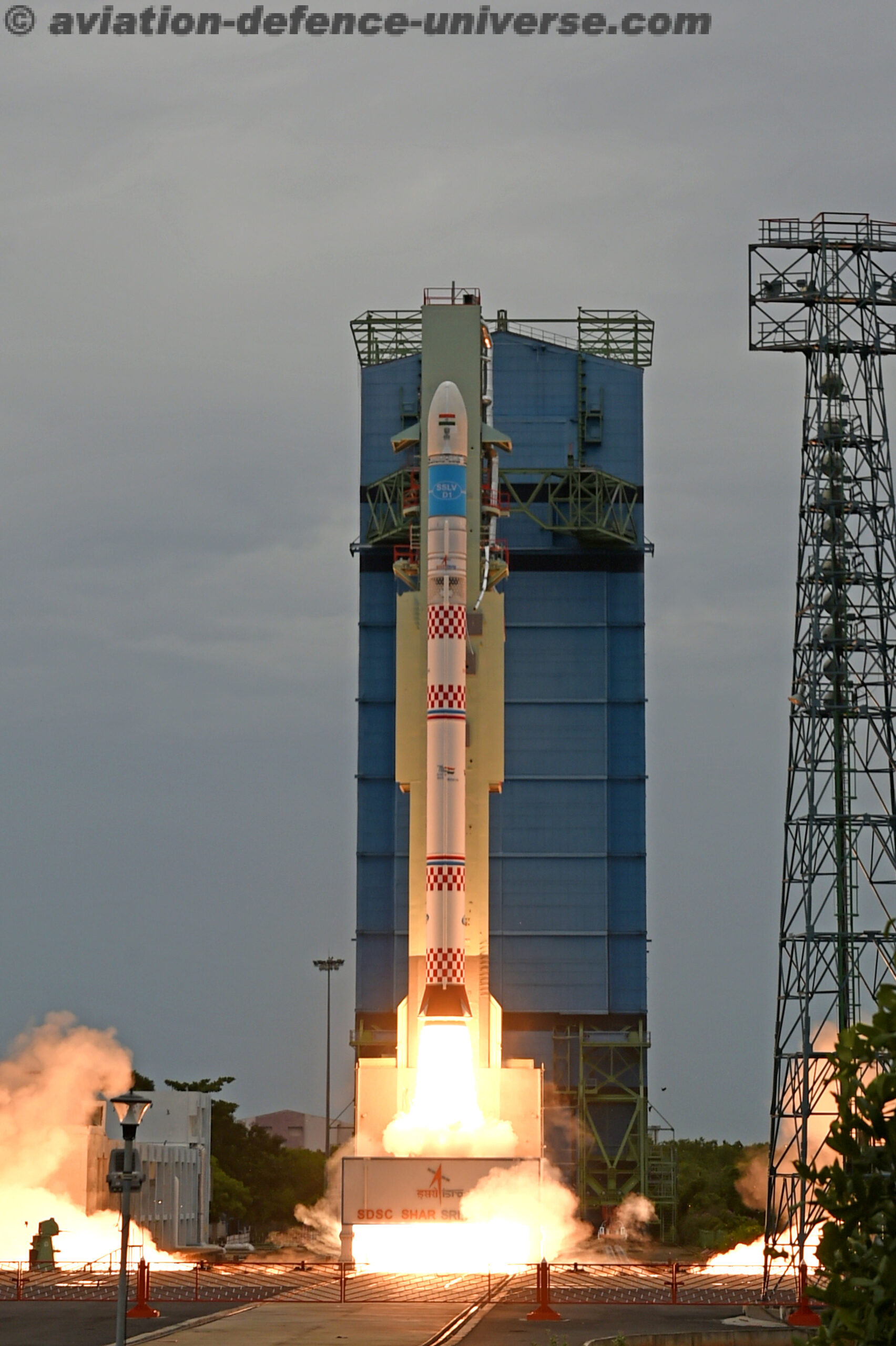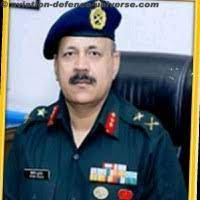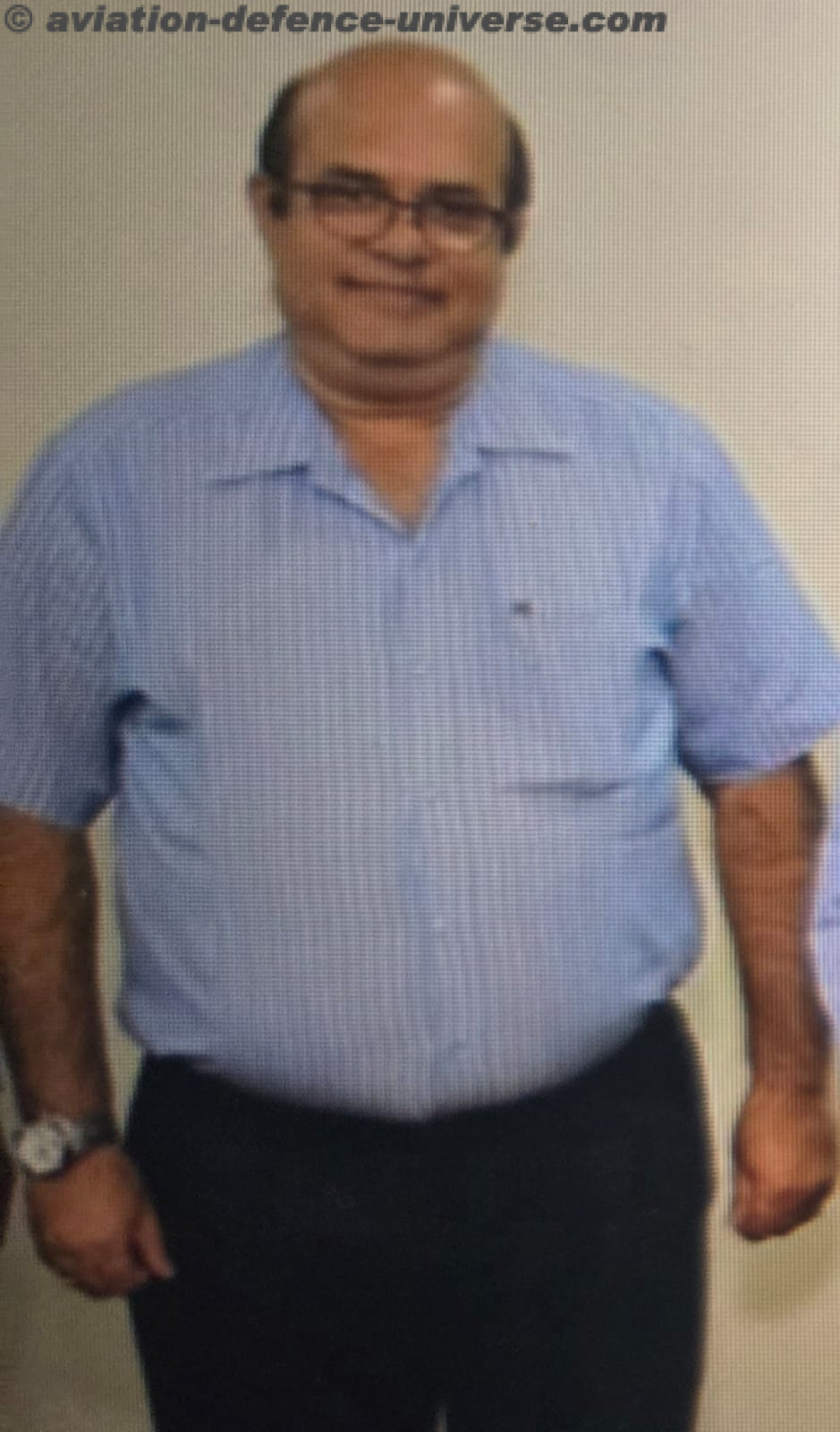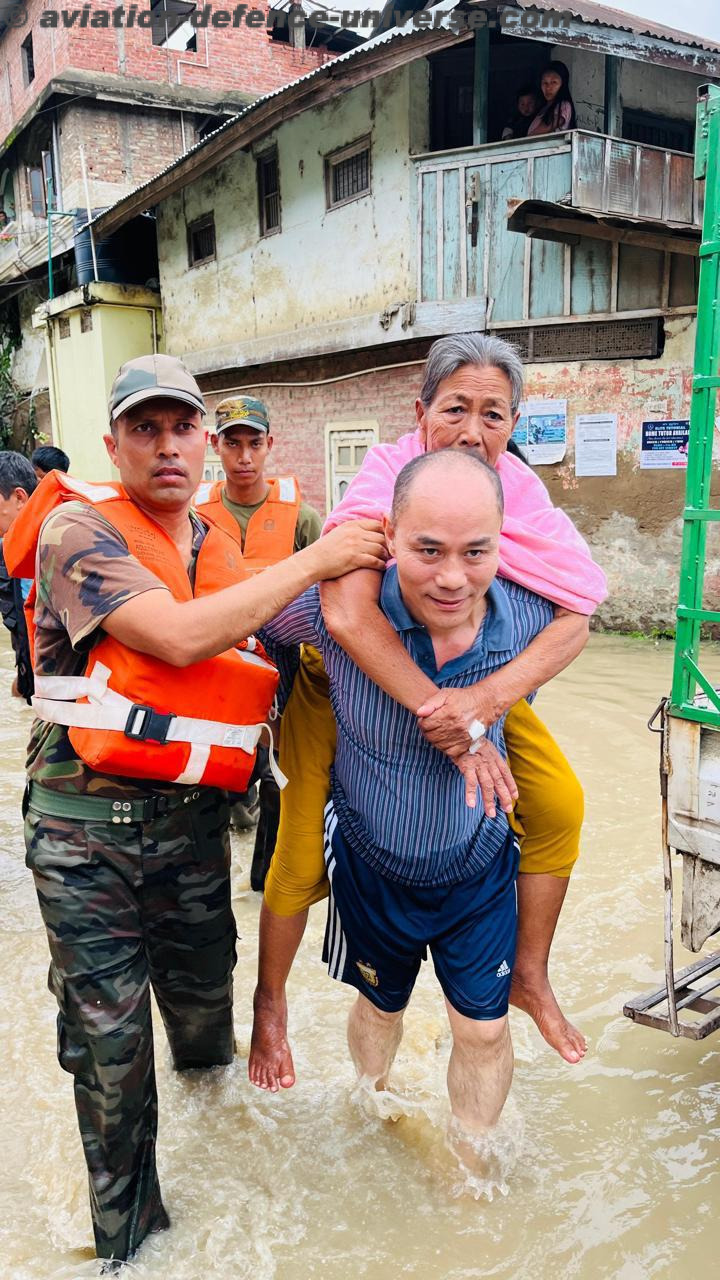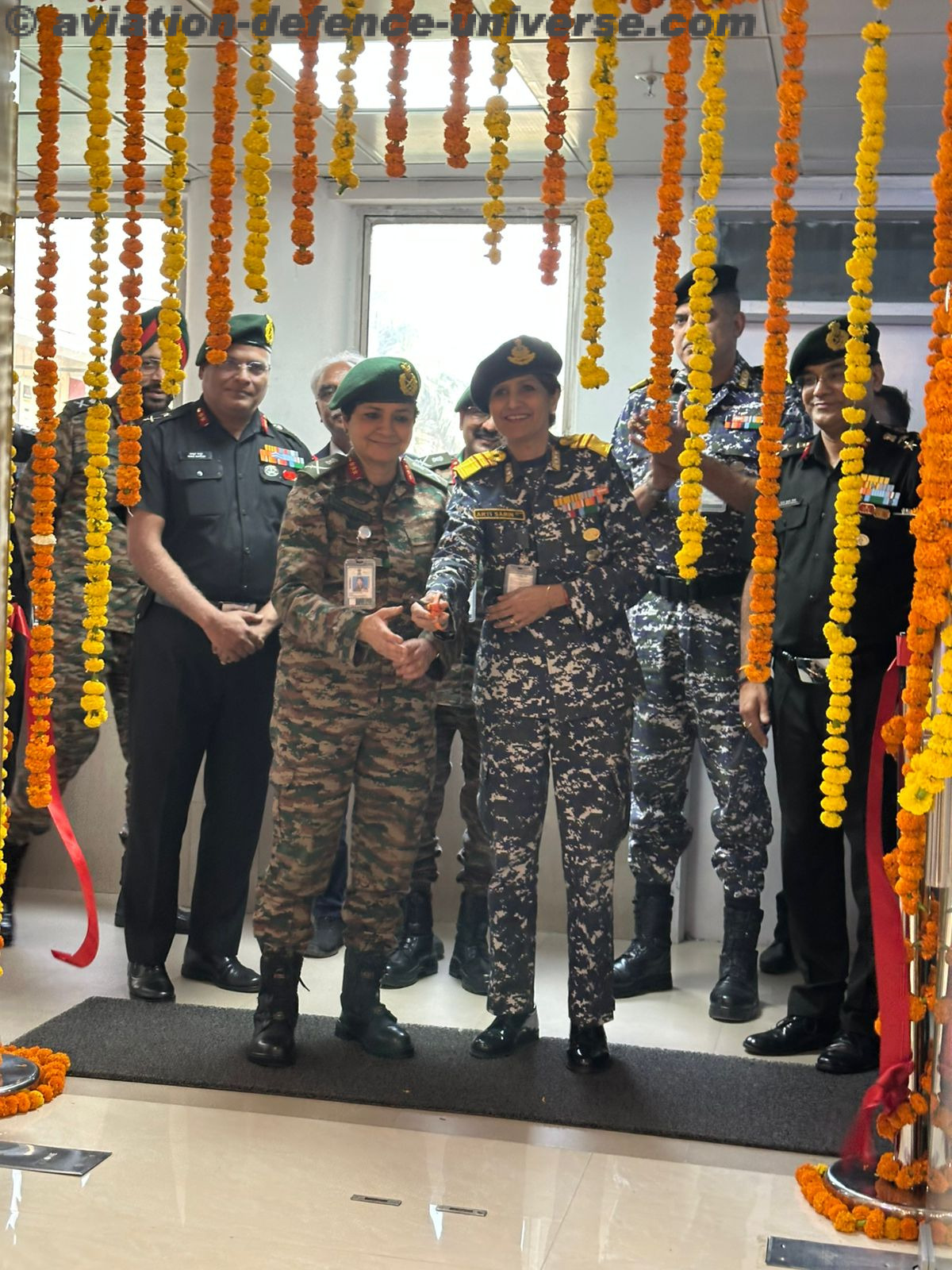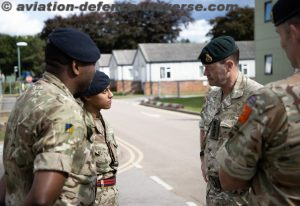
London. 16 September 2022. Chief of the General Staff, General Sir Patrick Sanders, visited The Royal Logistic Corps and the main concentration area of the Army today whose personnel are playing a key role in Operation London Bridge.
More than a thousand soldiers are living in the Army’s Surrey barracks and assembled living quarters since the operation was called last Thursday, following the announcement of the death of Her Majesty Queen Elizabeth II.
Units from across the UK were mobilised, and fleets of coaches were delivering personnel from the Armed Forces to facilities in Surrey, where they are now undertaking final rehearsals for this historic State occasion. On Monday morning the country will stop. The Army, along with over 100 Commonwealth soldiers will play a leading role in paying tribute to Her Majesty The Queen. We are well prepared for the biggest ceremonial event in a generation.
Away from the glare of the media and public spotlight, a team of 136 logistic experts from 27 Regiment, The Royal Logistic Corps (RLC) have been working day and night, playing their part in the funeral preparations for Her Majesty Queen Elizabeth II.
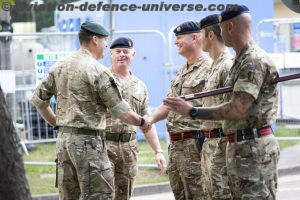
Witnessing the hive of activity in Surrey, General Sir Patrick Sanders said: “On Monday morning the country will stop. The Army, along with over 100 Commonwealth soldiers will play a leading role in paying tribute to Her Majesty The Queen. We are well prepared for the biggest ceremonial event in a generation.”
The RLC is the largest Corps in the British Army, formed in 1993, and made up of Regular and Reserve Army units serving the motto ‘We Sustain’.
They provide all the logistical support personnel, including soldiers from the Commonwealth, required to fulfil their duties both at home and abroad. They have been involved in operations across the globe including Africa, Brunei Canada, and the Falkland Islands.
Whilst soldiers perfect their drill and musical performances to deliver a ceremony that will be watched by millions worldwide, 27 Regiment provides facilities from catering to accommodation and transport for troops taking part in the funeral proceedings on Monday, 19 September, in London.
The setting-up of what is equivalent to a small town within 24 hours was a mammoth task. However, this team of specialists have experience of supporting large events. They have supported their colleagues during preparations for the funeral of His Royal Highness The Duke of Edinburgh in 2021, and the Queen’s Platinum Jubilee in June this year.
Brigadier Reehal MBE, Commander of 101 Operational Sustainment Brigade whose responsibility is to oversee the support function said, “At this point in the operation, what is taking place here now is being replicated in eight more rapidly established concentration areas surrounding, and inside, London. Our responsibility is to accommodate, feed and assist with tasks from medical, to haircuts to fitting uniforms for thousands of United Kingdom sailors, soldiers and aviators, as well as representatives from the Commonwealth countries.
“In the daylight hours they each rehearse their roles in the number of ceremonial events. By night, we deliver them to and from their multiple locations to either central London or Windsor so they may group together and rehearse while others sleep. A logistic plan commanding and controlling the movement of thousands of people utilising planes, trains and automobiles is in place.
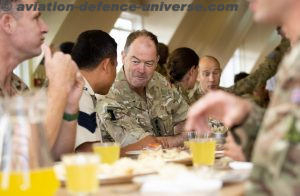 Captain Heathwaite, the Adjutant of 27 Regiment, said, “Our Regiment has recently conducted public duties in London at St James Palace, Buckingham Palace and the Tower of London, so we understand the long hours that go into the preparation for ceremonial events. “At this stage, it is very hard to take in the enormity and gravity of this occasion; I think the impact will really show through after the day of the funeral. For me personally, and from my military perspective, there is a real sense of pride and respect for the years of service that The Queen has given to us, and the country. I felt motivated by her, encouraged, and that made me and my team pull together and aim to achieve excellence to deliver Her Majesty’s last service. It is sad that we have lost our Queen, but we look forward to a new chapter in our history”
Captain Heathwaite, the Adjutant of 27 Regiment, said, “Our Regiment has recently conducted public duties in London at St James Palace, Buckingham Palace and the Tower of London, so we understand the long hours that go into the preparation for ceremonial events. “At this stage, it is very hard to take in the enormity and gravity of this occasion; I think the impact will really show through after the day of the funeral. For me personally, and from my military perspective, there is a real sense of pride and respect for the years of service that The Queen has given to us, and the country. I felt motivated by her, encouraged, and that made me and my team pull together and aim to achieve excellence to deliver Her Majesty’s last service. It is sad that we have lost our Queen, but we look forward to a new chapter in our history”
Corporal Fowler has been in the Army for nine years and is one of the administrators. His role, whilst preparations take place, is to act as a liaison officer to the Commonwealth soldiers who take part in the procession. Corporal Fowler said, “I recall a families’ day being held when I was roughly around 14 or 15 years old when The King, then Prince of Wales, came and greeted us all.’
Brigadier Reehal reflects, “I had the honour of meeting Her Majesty The Queen, at Buckingham Palace in 2010, when she presented me with my MBE for service in Afghanistan. In a most personal conversation with Her Majesty, I was struck by how much she knew about the challenges and the achievements of our unit, The Queen’s Own Gurkha Logistic Regiment.
“She praised the courage of both our Regimental officers and soldiers in action and their families back home. Her final words were to ask me about our seriously wounded and to wish them well. The occasion, I reflect honouring not me but my regiment, remains one of the proudest moments of my life.”
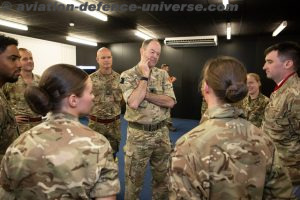
Brigadier Reehal added: “I have few words that can even begin to describe both my sense of loss, what Her Majesty meant to me, but also how proud I am to play my small part in honouring her. I feel, what I am confident the millions of service personnel from my grandfathers, my father, my mother, my brothers and more recently my son who swore an oath to serve Her Majesty, feel.
“She was our Monarch and our Commander-in-Chief, but she was also my North Star and my guiding light. My source of strength, of vision, calm, values, standards and of pride: the exemplar of selfless service to others to follow. And when I was either in her presence, or listening to her words in moments of tragedy, uncertainty, or light-hearted celebration it was above all her message of hope that placed a lump in my throat and a tear in my eye and made me proud to be British.”
In the days to come, quiet will again descend on this part of the Surrey countryside following another great and historic moment in its long history. It will again revert to its main purpose as a training facility, however for those still working here the echoes of ceremonial music and marching will remain with them for some time to come.















